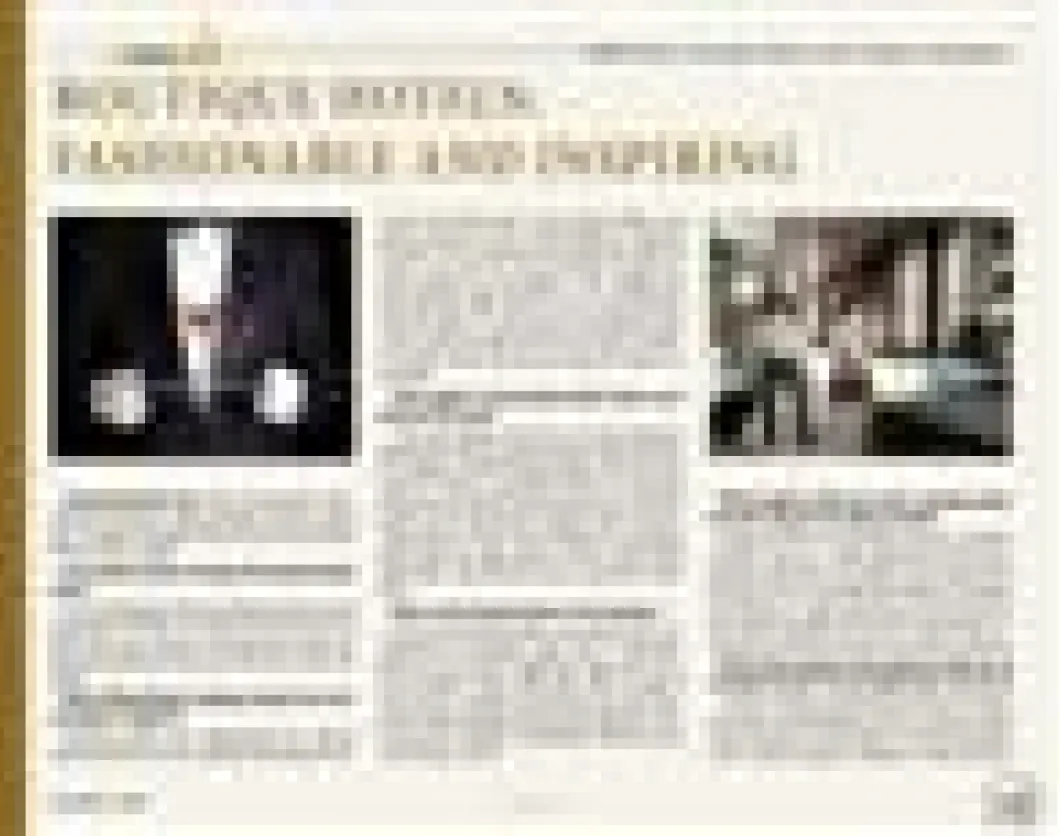Tourism-Review.com asked Euromonitor International Research analyst Angelo Rossini about the concept of boutique hotels as well as the latest trends in the industry.
How did the whole concept of boutique hotels start?
The first boutique hotels started operating at the beginning of the 80s in London, New York and San Francisco as an answer to large hotel chains offering standardized rooms and services across the globe.
What differentiates boutique hotels from other hotels in general?
Boutique hotels are characterized by owning unique features and by offering personalized services. The hotels have a very stylish design, are often themed, and are in fashionable or inspiring locations. They surprise their guests through live shows and music or simply by their original design, lighting and decorations. The relationship with the hotel staff, which is much closer than in chained hotels, is also peculiar of boutique hotels and is made possible by their size which is generally rather small, as they own about 50 rooms on average.
How popular are boutique hotels today compared to the past?
The recent global economic crisis has negatively affected the most upscale boutique hotels as travelers tended to opt for cheaper options. However, the long term trend is generally positive for boutique hotels as they offer to travelers not only accommodation but an experience, together with a personalized service, which is two aspects increasingly appreciated by hotel guests. For this reason, their popularity is expected to return to grow from 2010-2011.
What are the latest trends in the industry?
Some of the latest trends in this field are the establishment of boutique hotels with a “relaxation” theme in city centres, targeting in particular a business clientele. These hotels also offer a range of spa services. Another recent trend concerns boutique hotels targeting the growing segment of cultural tourism through a hotel theme referring to the local history and art.
What regions still have some unused potential with respect to boutique hotels?
Boutique hotels are generally still very underdeveloped. There is a high potential for their development especially in European cities where their concept is very consistent with strong local history and traditions. Large potentials are also present in all inspiring locations around the world where it is possible to build them around a strong local theme.
{%C3,4%}
What kind of guest is the typical customer of boutique hotels? Any developments over time?
Typical customers of boutique hotels are creative, innovative, technologically savvy, young at heart and mid-upper income people. The main development in terms of type of customers in the last years was the fast growth of business travelers attracted by comfort, personalized services and by the technological features, such as Wi-Fi internet connection in every room, offered by several city boutique hotels.
What is the outlook of boutique hotels?
Boutique hotels are expected to significantly benefit from the boom of online reservations. In the past, the main issue concerning their promotion was that, due to their small size, they didn’t own enough resources to market themselves effectively. However, through the internet, it is now much easier for them to be present on the websites of the main online travel agencies where boutique hotels will be able to exploit their superior appeal compared to chain hotels. Moreover, Web 2.0 features allowing hotel customers to leave their reviews on travel websites will also favour boutique hotels, which can boast very high customer satisfaction.










